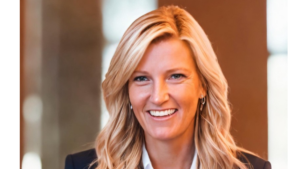Vikki Willimot was launch editor at Reputation Online, sister title to New Media Age and one of the first publications dedicated to the emerging social media industry. As she returns to Hill+Knowlton Strategies as global content lead, we asked for her thoughts on how the sector has changed over the last ten years.
In 2009, I was introduced to the team at new media age to work with them on an exciting new project. The idea was to report on the online reputation space in a way that reflected the developing media landscape – rather than create a new print title, we’d build a blog.
Not only that, but we’d present both an editorial point of view and a community generated side by side, with no hierarchy that presented the journalist’s view as more valuable than the professionals we asked to write guest columns and features.
Back then this was considered experimental — a far cry from the huge amount of citizen journalism we now see featured in everything from trade publications to more traditional press. Reputation Online was a fantastic thing to be part of, and a lack of long-term vision from our parent company sadly closed the shutters long before the excitement and appetite from its community waned.
Looking back over the past decade is an interesting exercise. Back then, social and digital were just starting to be featured seriously in the marketing mix. That made it a vibrant and experimental landscape.
The algorithms were still organic, and our skills in playing to them were key. I remember lots of conversation about this becoming formulaic; but oh, how lucky we were back then to even have the opportunity to affect organic reach through tactical, reactive content.
Social creative commoditisation
Now, the pay-to-play nature of Facebook and the like has commoditised ‘social creative’ even further. The social networks have largely been at-scale ad platforms for years, and I think fondly of the time when we could tweak content to create higher levels of engagement and ‘test & learn’ was a real thing.
Brands were often guilty of churning out content to be present and game the system though, and thankfully quality now reigns supremely over quantity.
The influence of the algorithm is now all encompassing and has a strong link to something more sinister — the perpetuation of fake news. If we were to start Reputation Online this year — the driving force of our coverage would be this.
Whereas back then we were tracking social media ‘fails’ (which more often than not weren’t really anything to do with social media use) — now we’d have to be much soberer.
We’re still chasing the influencers. They’re still just as important – if not more – but how brands are approaching this has changed dramatically.
The evolution of influencers
During @rep_online’s time, influencers were at stage two of their evolution. We’d moved beyond celebrities being the only ones to get sponsorship deals, and the megastar digital influencers were starting to emerge. Zoella started her YouTube channel the same month we launched.
Since then the industry has engaged micro influencers (people with actual skill in a specific topics) and now, nano influencers (regular people with often as low as 1,000 followers who are highly impactful on their own circles).
Working out how to engage these everyday influencers is the next frontier, along with far better tracking of the impact of working with them – from trackable retail links, product development and more. Just look to China to see where we’re heading on that front — the incubators who treat influencers like investments are pretty phenomenal.
And it’s not just influencers; the measurement & monitoring of our world is more mature and better integrated (from client expectations to the merging of tools).
Vanity metrics have given way to customer journey mapping and tracking those touchpoints to make sure there’s consistency in brand experience whether it’s online, offline or virtual. ‘Online’ can’t really be singled out anymore, and even though it’s a specific skill from a planning & optimisation point of view – digital touches everything we do.
Largely, the world of online reputation felt a little lighter than it does now; perhaps even a bit trivial.
But in today’s uncertain political and economic landscape, it’s no wonder the platforms (which are no longer being founded every few weeks) are being asked to take more responsibility, daily social media use has actually slowed according to GWI, dark social accounts for as much as 85% of shares, and the mistrust in media & government calls for a very style of influencer outreach.
It’s not all doom & gloom though; and the brands that are sticking to their core beliefs and trying to navigate this chaotic world by creating work that aligns to who they are, being honest & transparent are the ones seeing success.
We always use to talk about ‘being human’ as the key to success online (cringe) — but funnily enough, the same rule really does still apply.









